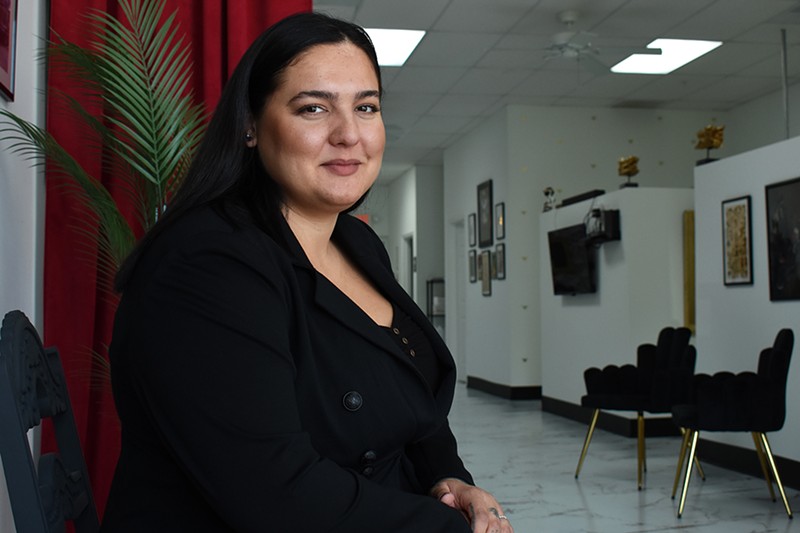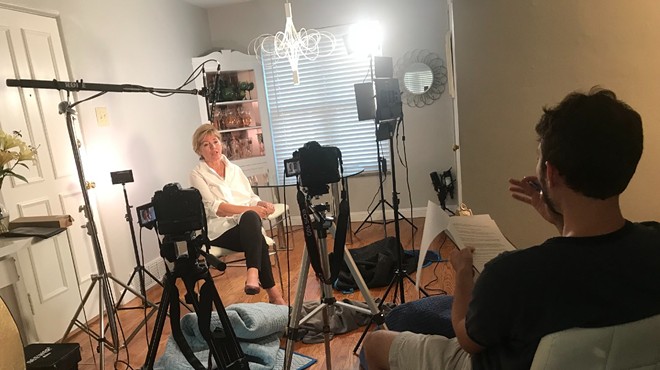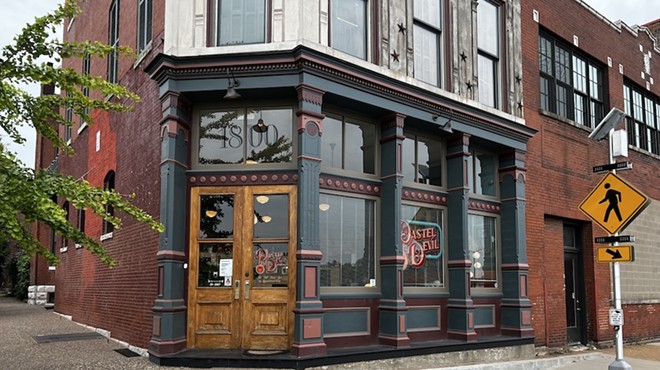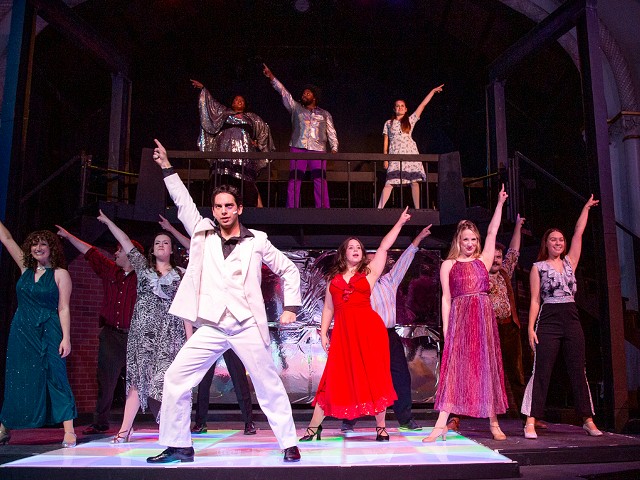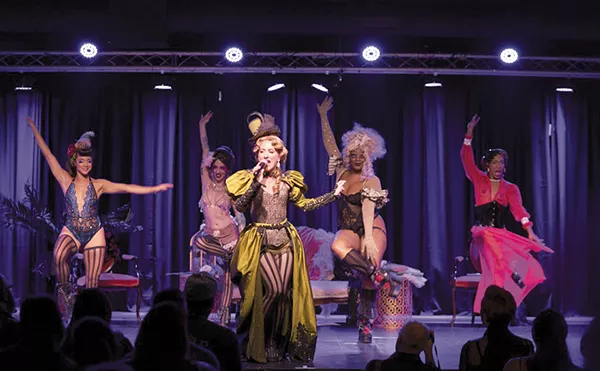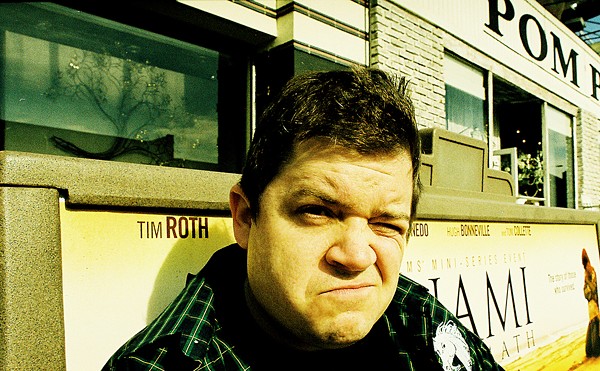For Azra Selimovic, the opening of Azra Tattoos last month feels like nothing short of a miracle.
She knows the shop wouldn’t exist, much less in a strip mall in Affton, without escapes from concentration camps, close calls with hostile officers in the war-torn Balkans, and stops in multiple foreign countries.
“It was a huge deal for us,” Selimovic says of the shop’s September 3 opening.
Azra Tattoos is one of very few Bosnian-owned tattoo parlors in Missouri, much less the U.S. Selimovic, who co-owns the shop with her husband, can name just one other — a parlor in New York.
The Selimovics spent months transforming the space from a TV repair shop to a tattoo parlor. They worried their investment could be for nothing as an older group of residents spoke against the parlor's opening to county officials. St. Louis County Council was supportive, however, and the council approved the zoning for Azra Tattoos in May.
That was big. But what makes Azra Tattoo’s existence truly an astonishing feat is the decades of struggle that led up to it.
Selimovic’s parents left Bosnia as war ravaged the country in the early 1990s. Ethnic tensions were at a height, with indiscriminate shellings, mass rapes, and genocide of Bosnian Muslims carried out mostly by Serbian forces.
The war started in 1992. Selimovic, now 30, was born in 1993.
While Selimovic’s mother was pregnant with her, Serbs took her and used her as a human shield on the front lines. Her father, a tall, fit man in the National Guard, was twice taken to concentration camps to build trenches and do other physical work for the Serbian army. He managed to escape both times.
When Selimovic’s family decided to escape, she was three months old. The friends they traveled with, most in their late teens or early 20s, didn’t make it; their friends decided to veer off through the woods where soldiers and landmines awaited. Azra’s family kept to the main roads.
With Azra in their arms, her parents walked on foot and waded through rivers. At a Serbian checkpoint, an officer asked for the family’s papers.
Their names on the documents would have been a dead giveaway that they were Bosnian.
“They knew when they’d show it to them, they would be sent back to be killed,” Selimovic says.
Azra’s parents slowly pulled out their papers. But right when Azra’s father handed the papers to the officer, a bee stung the officer near his eye. The officer reacted with fury. He threw the papers down and yelled at the family to pass through.
Now each of Selimovic’s family members has a tattoo of a bee. The insect is also used in Azra Tattoo’s logo, and bees are displayed throughout the tattoo parlor.
“I think my parents taking that risk and going through that fight fueled me to fight for something even more,” Selimovic says. “They came to a country where they didn’t know the language, didn’t know anybody, and boom, made something out of nothing.”
Like many refugees of the war, Selimovic’s family fled to Germany. When she was 7, her parents moved to Atlanta, Georgia, in search of the American dream; to try to make “something out of nothing,” Selimovic says. The family moved to St. Louis a few years later to live among more Bosnians. St. Louis has the largest population of Bosnians other than Bosnia.
“We wanted to stick together,” Selimovic says.
Yet all the moving made Selimovic feel like “the new kid” for much of her childhood. Language barriers didn’t help.
But there was always art.
“It was a way to express myself when no one else understood me,” Selimovic says.
As she grew up, she says she had a reputation for being an artist. People in high school would ask her to draw them tattoos. Even so, becoming a tattoo artist never seemed like a possibility.
Not everyone in Azra Selimovic’s culture is so positive toward tattoos. She doesn’t like to overgeneralize, but many Bosnians tend to have an old-fashioned way of viewing tattoos — meaning they don’t like them. It’s a bit ironic, Azra Selimovic says, given the long history of the art in the Balkans.
When the Ottoman Empire invaded Bosnia and Herzegovina in the 1300s, mothers in Bosnia tattooed symbols on their daughters to “tarnish” them so they wouldn’t be taken as wives. They did the same on their boys so they wouldn’t be taken as soldiers — a show of resistance to the Ottomans and a way to preserve Bosnian culture.
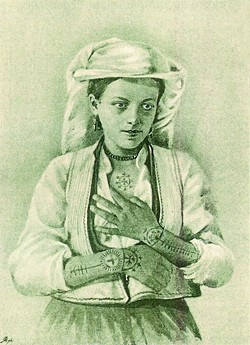
The tattoos included religious symbols such as crosses pricked into skin using a varying mix of water, saliva, gunpowder, soot and honey. Other tattoos symbolized protection and family or represented certain villages or tribes.
The practice is called “sicanje” or “bocanje.” Both mean “to prick.” The origins of the practice have been traced to long before the Ottomans.
“Going back to our deep roots, tattoos are actually a huge part of our culture,” Selimovic says. “Now, our parents’ generation is a little against it. I don’t know if that’s because of religion or what.”
She says her husband, Seldin, believed in her before anyone else. He saw her drawing one day and asked her to draw something on his body.
“We ended up buying a cheap little tattoo machine from Amazon and some ink, and that’s pretty much how everything started,” Seldin Selimovic says.
Azra Selimovic has tattooed “sicanje” designs on clients before, but her parlor offers a wide variety of tattoos. Azra Tattoos’ slogan is “you think it, we ink it.”
Inside Azra Tattoos, natural light filters in through the front windows. The space has an almost Gothic feel; a red curtain separates the entrance from the rest of the space. Pictures of skulls and bees hang throughout. Selimovic’s vision is evident everywhere — everything seems placed with thought and intention.
When Selimovic describes her process, it’s the conceptual stage of manifesting what a client wants in a design that she speaks most passionately about. In a way, she’s been doing this all her life — even as a young girl with a marker, she’d “tattoo” small drawings on her classmates for 25 cents. She says she’ll stay up until 2 a.m. drawing a tattoo for someone because she loves it so much.
“You build a bond with everybody and you learn about their life and their story,” Selimovic says. “Creating something that will last forever on someone is quite an honor.”
Editor's note: A previous version of this story contained an error in the headline. We have since become aware of another Bosnian-owned tattoo parlor in St. Louis, and we regret not acknowledging their work.
Follow us: Apple News | Google News | NewsBreak | Reddit | Instagram | Facebook | Twitter | Or sign up for our RSS Feed

